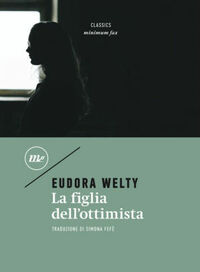You need to sign in or sign up before continuing.
Take a photo of a barcode or cover
I think I would like to read this book in a literature class and really talk about it. There were sections that really caught me, but on the whole I had a hard time following the scenes and often had to go back and keep reading. I wanted desperately to like it, but thirty pages before the book was over I realized that I didn't really care what happened in the end.
It did have some beautiful sentences and paragraphs, and I was glad I finished reading because the end was my favorite part.
It did have some beautiful sentences and paragraphs, and I was glad I finished reading because the end was my favorite part.
reflective
slow-paced
For a short book, this is quite a slow read. In the last 30 to 40 pages I finally became interested and liked it more. However, before it got to the point, I couldn't see what that was going to be.
Outliving is something we do them. The fantasies of dying could be no stranger than the fantasies of living. Surviving is perhaps the strangest fantasy of them all.
It was an emotionally rough weekend, but I'm here.
It was an emotionally rough weekend, but I'm here.
A gently elegiac novella about a middle-aged woman, Laurel McKelva, confronting her family’s history after the death of her father. It is a touching but low-key snapshot of a disappearing way of life in 1960s Mississippi.
http://www.nytimes.com/books/98/11/22/specials/welty-daughter.html
This short novel won Eudora Welty a Pulitzer in 1972. The Optimist's Daughter is the tale of Laurel McKelva, a middle-aged widower living in Chicago, called to New Orleans to be with her ailing father the Judge. After the Judge passes - one doesn't say dies in the South - Laurel and her step-mother, the younger and self-centered Wanda Fay, return to the family home in Mississippi to bury the Judge.
This is the extent of the plot. Nothing much happens beyond this, but through conversation, and Laurel's silent observations, Welty draws a delightful picture of Southern nuances - the difference between Mississippi folk and Texans; the proper way to grieve a death (Laurel's) and the improper way (Fay's); the importance of position, and a willingness to forgive an error in judgment, but not a lack of manners.
Laurel is alone in the world, having lost her mother, her husband, and now her father. She must come to terms with this loss. Like the creeping roses which her mother nurtured, Laurel realizes the memories she has are not attached to things, but are kept alive by the love from her parents and husband, a love that is still alive within her and will bloom with her wherever she is planted.
This is a simple story, but it's been deeply rooted in the Southern soil.
This short novel won Eudora Welty a Pulitzer in 1972. The Optimist's Daughter is the tale of Laurel McKelva, a middle-aged widower living in Chicago, called to New Orleans to be with her ailing father the Judge. After the Judge passes - one doesn't say dies in the South - Laurel and her step-mother, the younger and self-centered Wanda Fay, return to the family home in Mississippi to bury the Judge.
This is the extent of the plot. Nothing much happens beyond this, but through conversation, and Laurel's silent observations, Welty draws a delightful picture of Southern nuances - the difference between Mississippi folk and Texans; the proper way to grieve a death (Laurel's) and the improper way (Fay's); the importance of position, and a willingness to forgive an error in judgment, but not a lack of manners.
Laurel is alone in the world, having lost her mother, her husband, and now her father. She must come to terms with this loss. Like the creeping roses which her mother nurtured, Laurel realizes the memories she has are not attached to things, but are kept alive by the love from her parents and husband, a love that is still alive within her and will bloom with her wherever she is planted.
This is a simple story, but it's been deeply rooted in the Southern soil.
emotional
funny
hopeful
reflective
slow-paced
Plot or Character Driven:
Character
Strong character development:
Yes
Loveable characters:
Complicated
Diverse cast of characters:
No
Flaws of characters a main focus:
Yes
A beautiful little book about grief and memories. Welty is such a good writer, and every sentence is so obviously well crafted. There is so much feeling packed into this, but I was in the mood for something more gripping, so my heart wasn't in it. I'd probably revisit during a tragic time?
I literally got to the second to last page thinking that while I enjoyed this for some indefinable reason it never quite "clicked" in the way I kept waiting for it to, though I very much appreciated a certain strangeness lurking just beneath the ostensible simplicity of the prose. Then on the actual last page the emotional weight of the narrative, which had been kind of otherwise floating nervously about, suddenly congealed into a weight of devastating force within the span of a single sentence. Almost in a daze, I reread the last several paragraphs several times before finally closing the covers. I'm still not quite sure whether it entirely succeeded, but can't deny the dramatic, almost singular reaction it ultimately managed to elicit from me.

